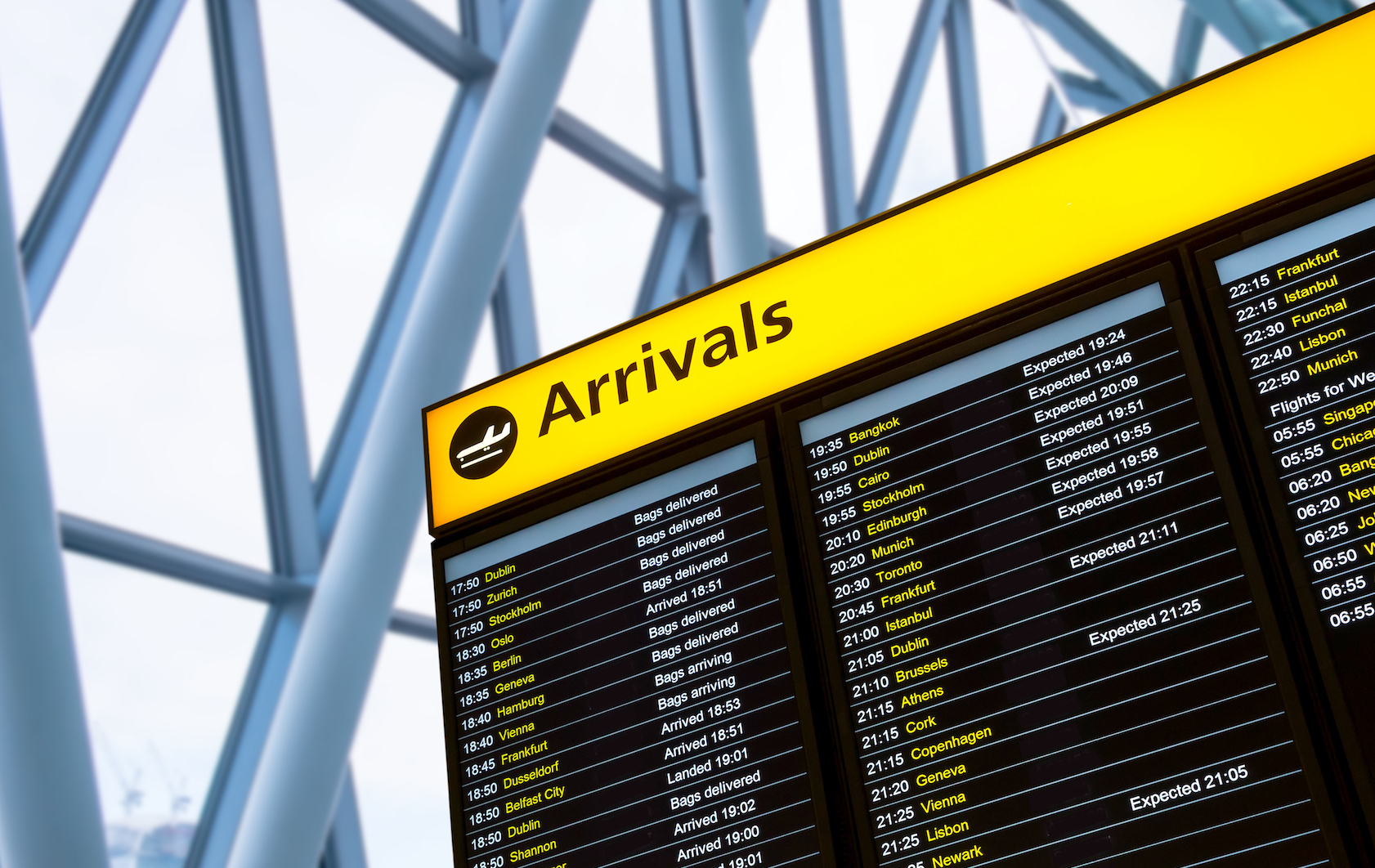Days
Hours
Minutes
Seconds
May 1 2026 - Renters' Right Act Commencement Day
You have 0 days to:
Serve any final Section 21 notices
Stop accepting above-asking rent offers
Prepare for the rental bidding ban
Remove “No DSS” from adverts
Remove “No Children” from listings
Show one clear rent price
Stop using fixed-term agreements
Switch to periodic tenancy templates
Check which tenancies go periodic
Stop taking rent before signing
Take no more than one month’s rent
Move all evictions to Section 8
Train staff on new notice rules
Create Section 13 process flow
Add two months to rent reviews
File court claims for Section 21s
Update landlord move-in grounds
Update landlord selling grounds
Send the RRA Information Sheet
Create written terms where missing
Update How to Rent processes
Review tenant screening questions
Update pet request processes
Stop backdating rent increases
Discuss rent protection backbooks
Act now before it is too late...
Q&A: Everything you need to know about right to rent, with David Smith
Legal expert answers letting agents' questions on right to rent, including using Identity Service Providers (IDSPs) and the new rules for Biometric Residence Cards.
The Goodlord team
Mar 21, 2022
With so much going on around the English right to rent checks, David Smith, Partner at JMW Solicitors, has answered some of your top questions on the topic in this Q&A - and you can watch and listen to the full conversation too:
An overview
The ways that landlords and agents can check and prove their tenants' right to rent in England is going digital, with three alternatives to manual checks either in use or on the horizon.
There's the Home Office's Landlord Checking Service, if the applicant can't supply relevant evidence of their right. This is different process to using the Home Office's online service, where tenants can provide landlords with a share code to check. This second process will become mandatory for applicants with Biometric Residence Cards or permit holders from 6 April.
And, from 6 April, landlords will be able to start using the new Identity Service Providers (IDSPs) and Identity Document Validation Technology (IDVT) to prove the right to rent of British and Irish citizens - with an extension of the temporary Covid-adjusted checks until 30 September, giving the IDSPs time to gain accreditation - and to give landlords and agents some breathing room to prepare.
Right to rent FAQs
IDVT and IDSPs- Are landlords liable for the new checks?
- How will the IDVT checks affect tenants?
- Can we just carry on doing the same manual checks?
- If a tenancy starts in April, but the checks are done prior to the change in legislation, is this acceptable?
- Do agents need to recheck existing tenants?
- What is the difference between IDVT and requesting share codes?
- What's changing with the Biometric Residence Cards?
- Is the home office online check replacing visas and permits and passports?
- Are there any plans to combine all of the new digital services into one?
- What should an agent do if the tenant's right to rent is expiring or has expired and they can't get a share code?
- What happens with overseas students for this upcoming academic year?
- How is right to rent affected by landlords considering refugees from Ukraine?
- When we come up to tenancy renewal for a landlord or agent with foreign tenants, would you advise that they do another right to rent check?
- What's the best way to carry out a right to rent check on a BNO visa scheme?
- How long after a tenancy has ended can we hold onto certified ID docs on file?
IDVTs and IDSPs
There will be a list of verified IDSPs provided by the government - does this mean landlords are no longer liable for these checks?
The reality is that the obligation is not on the IDSP, it's on the user of the service to verify that the service is robust. IDSPs do have to sign up with the home office, and they have to verify with the government they're using the technology appropriately, but the home office's code of practice is crystal clear that the liability still falls with the landlord, and it's up to the landlord to make their own checks.
So it appears that the home office is saying, "Well, we'll sign these people up, but the home office isn't guaranteeing it." The companies, presumably, are guaranteeing it to you, but you have no absolute certainty of it, no.
I contrast this, of course, with landlords and letting agents. If a landlord signs over their responsibility to a letting agent, as they can do under legislation, the letting agent is liable for that. But if a landlord signs over responsibility to an IDSP, the IDSP, apparently, in law, at least, has no liability at all. That doesn't seem like an equitable balance to me.
How will the IDVT checks affect tenants - and can they choose a manual check instead?
Tenants are actually going to end up having to register with multiple providers as they go through different landlords, depending on which provider each agent or landlord is using.
There's going to be some pressure on tenants to either register across multiple providers, which they might not like very much, or on agents and landlords to use multiple providers themselves, to detect the widest pool of tenants, as it were, and validate them.
However, individual Irish and British nationals are perfectly entitled to decline to authorise through an IDSP and ask to be right to rent checked in the traditional manner, looking at their passport.
The government has updated its guidance on discrimination to make clear that it is unlawful discrimination for you to insist on a tech-based solution. It leaves certain groups of people who don't have the same level of access to the internet, much more out in the cold. And that's not particularly productive, in my view.
Then the third point is that there's already been quite a lot of pushback with the use of open banking for referencing. There's a lot of pressure on them about data theft and data protection.
And so a number of people would like to be somewhat squirrelly, about placing their data into IDSPs. So I think that's a question that has got to be answered. And of course, it'll be up to the government and the IDSPs to be able to satisfy people that their systems are robust and secure.
Can we just carry on doing the same manual checks?
It depends who you are checking. The new right to rent code of practice, which comes into April, changes some of the checks.
If you are checking EU and Irish nationals, then traditional document checks, which start with passports and then go on from there, are still perfectly possible. And you are required to be able to provide manual checking as an alternative to IDSPs, anyway.
If you're checking people from abroad, then the government has slashed back on what you're allowed to check as a document. So all forms of biometric residents card and biometric residents permit and frontier workers permit, you are not going to be allowed to check those physical documents anymore.
You must use the home office's online portal. So anyone that's claiming they have EU settled status or an electronic visa or any form of BRP, BRC, frontier workers' permit, etc must now be checked through the home office's online portal.
If a tenancy starts in April, but the checks are done prior to the change in legislation, is this acceptable?
This addresses the elephant in the room. The government has altered the checking windows a little bit.
If you are checking someone for a permanent right to rent - so a British or Irish national or someone who's got a permanent right to reside - you can check them at any point prior to the tenancy. There's no time limit.
Now, this does open up an interesting point because previously, we've tended towards the view that you had to redo a check. Say, if a tenant was moving to a different property with the same landlord and in theory, they needed to be checked again. And that's what the legislation says.
But if you're able to do a check at any point, prior to the tenancy, even potentially, years ago, you couldn't, in theory, just do one check.
And, provided the tenant stays with the same landlord that moves around their properties, for example, or even arguably, stays at the same agent, that check should be good for all future tenancies.
The other situation is where someone is being checked for a time limited right to rent, that check must be done in the 28 days before the tenancy is entered into.
So the answer to the question is, it depends on the type of person you're proposing to do the tenancy with, and whether they can establish a permanent right. In which case your check is good adding for another term, or whether they're establishing a time limited right, in which case, the dates will matter.
Do agents need to recheck existing tenants?
No, absolutely not. This is only a slight tweak to an existing system. It's not a replacement for the existing system. If people have established a right to rent with you already, then that stays established. If they had a time limited right to rent, then obviously, any recheck would need to be done in line with the new code of practice.
The law is not changed, but the code of practice is statutorily approved by parliament, and it tells you how you have to implement the law on the ground. The underlying statutory mechanism has not changed.
In fact, it really changed some months ago, of course, with the whole thing about British and Irish nationals and the EU settled status as we left the EU, which was pretty much a year ago now.
So the only change here is, quite a subtle change to code practice. It doesn't affect the rights of anybody who's already obtained the right to rent.
What is the difference between IDVT and requesting share codes? Do they work alongside each other?
No, they're for totally different parties. Share codes are the government's website run by the home office or by contractors, on their behalf, for people who have got EU settled status or some form of electronic visa.
The government will undoubtedly expand that to cover its whole sweep of visa provision.
And IDVT and IDSPs are third party private companies who have entered into a contract with the home office to check UK and Irish nationals only. So they're not dealing with the same people, and they are different organisations.
Share codes and the online checking service
What's changing with the Biometric Residence Cards? Are they being phased out?
From the 6th of April, you cannot accept a BRP or BRC or FWP, as a physical documents, it must be done electronically. From this date, you cannot do a right to rent check using a physical BRP card. You will need to get a share code.
The summary answer is, yes, they are being phased out, anyway. And the government has been trying to make it like EU settled status.
Is the home office online check replacing visas, permits, and passports?
People who can go through the Home Office online services, anyone with EU settled status, people with an e-Visa and people who have a Biometric Residence Permit or Card, and a frontier worker's permit - those are all moving online.
Over time, the home office is clearly indicating a trajectory to shift more of its visa activity online. But there will still be people who have, and will be for quite some time, who will have historic stamped visas in their passports.
That will continue to happen in certain types of visa. And those visas will need to be checked physically. So not every visa will move online, yet. Although, that seems to be a direction of travel.
Do you know if there are any plans to combine all of the new digital services into one, in the future?
I think it'd be very difficult for the current government to run an ID checking system for UK nationals. They can job it out to third parties. It would be quite difficult for them to run it on a central basis.
I suspect what they'll actually do is, see how IDSPs get on. They'll also probably see if IDSP technology and IDVT stuff spreads in terms of other areas. So if other parts of the system pick it up.
But it's quite difficult for the current government to legislate for anything that looks like an ID card. And IDSPs smell of an ID card to a lot of people.
What should an agent do if the tenant's right to rent is expiring or has expired and they can't get a share code?
Then you need to report them. There's an online reporting tool, again, accessible via the code of practice. There's a link to it. And you need to report them for being breached for the right to rent.
You can, at that point, ask the home office to provide you with a certificate verifying that they don't have a right to rent to allow for eviction, as well.
What happens with overseas students for this upcoming academic year? If we had carried out checks in person last month, would they need to have a share code check as well?
It depends when you sign the tenancy agreement. If they've only got time limited right to rent checks, you can only do the checks in the 28 days before the tenancy agreement was signed.
If you sign the tenancy agreement after having done the check last month, then no, you don't need to do anything else. If you didn't sign the tenancy agreement, you shouldn't have done the check last month, you're going to have to do it again.
GDPR, tenancy renewals, and other right to rent topics
How is right to rent affected by landlords considering refugees from Ukraine?
It's not, really. If you are accepting a refugee from Ukraine, they still have to pass right to rent checks. If they're coming through the government's, these new homes for Ukraine scheme, then they will be granted a temporary right to reside and presumably, a right to rent, as part of their entry into the UK on the sponsorship visa that's going to be created. So they should be able to show that to you.
But the government has yet to be entirely clear what that sponsorship visa will look like, whether it will be provided electronically or on paper, or what we are going to do with it.
So until we know that, and we are not supposed to know until at least, tomorrow, when the guidance is supposed to be published, although, I'm not betting on it arriving tomorrow, it's not a question I can fully answer right now, I'm afraid.
When we come up to tenancy renewal for a landlord or agent with foreign tenants, would you advise that they do another right to rent check?
Not necessarily. Those two things are entirely decoupled. I think it would probably depend a little bit on what the original time limited right to rent was.
If I was coming up to renewal and someone's time-limited right to rent was going to run out next month, then it would be practical to do their right to rent check before their renewal.
But if their right to rent has got another six or eight months to run, then I would just do the renewal and do the right to rent check, at the appropriate time. So the difficulty with that is, it assumes that everyone's time-limited right to rent is the same, and they're not.
Permanent right to rent, no, of course you don't need to check. If it's a time limited right to rent, then you'll probably need to take a view depending on what the time limit was that originally occurred.
For those who have a BNO visa scheme, what would you say is the best way to carry out their right to rent check?
Well, they should still be presenting a British National Overseas passport, a physical passport. A BNO passport is not a right to reside in the UK. They do not automatically have a right to rent. They will need to present you with a visa as well.
The visa should indicate whether it's a permanent right to reside here, in which case, they will have a permanent right to rent, or whether it's time limited, in which case they will have a time limited right to rent. Then you need to act accordingly.
So it depends on the nature of the visa. But in practice, you need to look at the passport. You need to look at the visa, you need to satisfy yourself that it's a valid document and it's the same person. And then follow the terms of the visa. If you're uncertain, then I would use the landlord checking service.
How long after a tenancy has ended can we hold onto certified ID documents on file?
The right to rent requires you to retain them from one year after the tenancy has ended and the person has vacated. If you want to retain them for longer than that, then you would obviously need some form of justification.
Top tip - you probably won't have one. So I wouldn't be holding onto them beyond the right to rent period.
Want the latest lettings new delivered straight to your inbox every week? Sign up to our mailing list and stay up to date.







